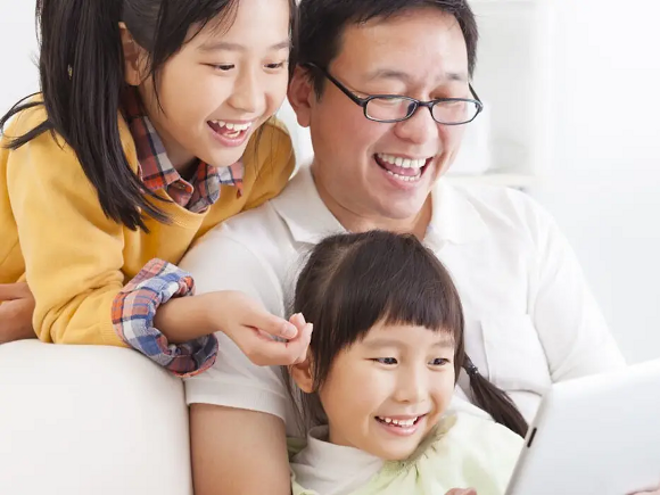
Parenting in the age of social media
How do you teach your children to use social media responsibly? Read these tips on parenting in the social media age from mom and writer Georgia Schulze – Del Rosario.
“You cannot raise your children the way your parents raised you because your parents raised you for a world that no longer exists.”
I found this quote on a social media site, and I think it captures the modern parent’s digital dilemma. In the 80s and 90s, parents just had to worry about setting curfews and limiting television time. Today, we have to manage a multitude of screens, and our kids can make all sorts of “friends” who we will never meet.
Social media gives kids a way to connect with friends and family, and express themselves to a larger audience. However, there are also many dangers to it: false perceptions which lead to unattainable standards, the lengths people will go for creative content, and online bullying, to name a few.
Our kids went “social” before birth
Unlike our parents, the answer isn’t as simple as unplugging the TV. Can we really blame our children for having a piqued interest in social media, when in many cases, they can find a book’s worth of information on their lives online?
We are the last of the generations that started out with a blank online canvas. We were free to decide who our digital personas would be. To a degree, many of our children don’t have that right, because their parents have essentially decided for them.
We share anecdotes of our children on Facebook. We can’t help sharing photos of our little ones – many times from birth – on Instagram. YouTube has also produced many young online celebrities who live with a camera in their faces. It poses the question, “Whose property is it, really?” Moreover, who really has the right to share it?
As parents, how do we navigate teaching our children the concept of social media, if even we ourselves don’t fully understand or see the effects?
We can’t stop social media, but we can form social media habits
Although there’s a lot of controversy and debate surrounding how much we should share about our children on social media, what’s most pressing is the social media habits that the future generations form.
We can help form good habits by treating social media as it essentially is – a form of social interaction. With that, we can go back to fundamental rules we live by and apply it to our online habits.
Be Yourself
Your online persona should mirror who you truly are, even up close and in real life. As parents, we can role model this behavior and talk about this issue with our older kids.
However, a young child is still figuring out his identity. It’s probably best to hold off on social media until your child has some maturity and self-awareness, especially since the information overload will impact his formative years. Instagram, Facebook, Twitter and Snapchat have set a minimum age requirement of 13 years old. But you know your child best, and can decide when he is really ready.
Kindness is key
For every stage and aspect in life, teaching your children to proceed with kindness as much as caution can only be better for the world -- both online and offline.
When you post or scroll, be kind – to others, as well as to yourself. This holds true even in the comments section. The protection of a screen should never affect what you say or how you react.
Everything in moderation
Looking through social media brings forth a form of pressure that is unmatched. Seeing images of seemingly perfect lives and highly curated content can spark feelings of envy and insecurity.
In a way, this can push younger generations to work harder to attain the lifestyle they want for themselves. But this can also make them question their self-worth. Teaching them to set limits for themselves is imperative, and will lessen the power social media has on their lives.
Our goal is to teach social media responsibility
The Internet has definitely shaped our modern world, and many can no longer function without a proper WiFi connection or data service. With that in mind, instead of trying to prevent the next generation from using social media altogether, perhaps we should prepare them to be responsible and respectful users.










